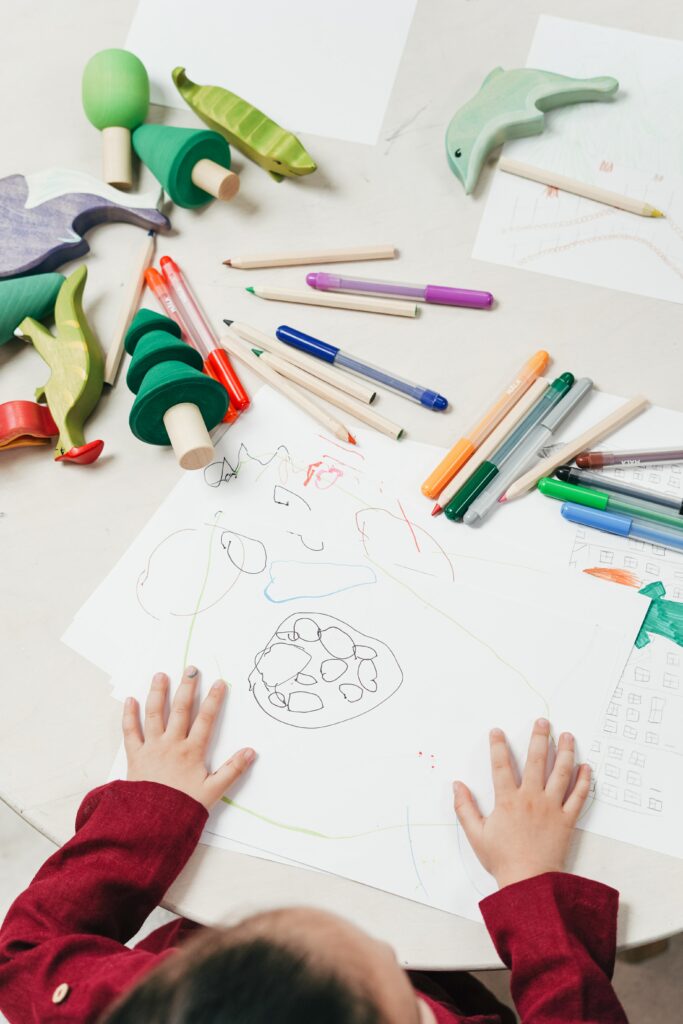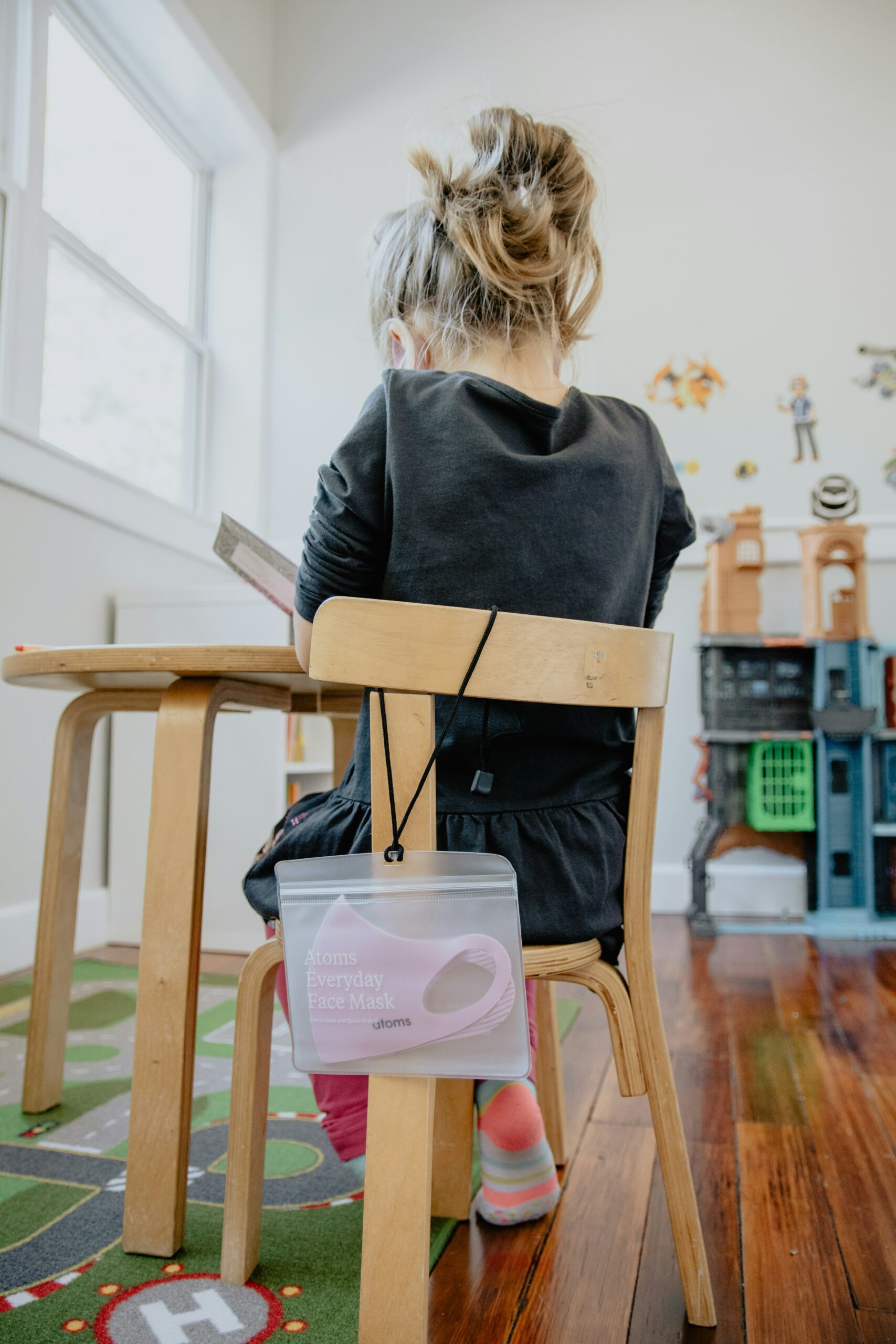A child’s first day of school marks a huge transition, so they need to be well-prepared to adapt to a classroom environment and make new friends, and you, as a parent, need to be the one to teach them their basic set of skills.
If you are not sure where to start and what to do, try reading this article, as it will be your guide in this long process.

Listening Skills
Children without already developed active listening skills can struggle to pay attention in the classroom and will have a harder time learning. It’s important to teach them how to listen carefully and actively, and this is something you can do at home.
Children must be able to listen to instructions and other adults if they are going to learn in school. They also need to be able to listen to their classmates and use audio teaching aids to develop their language, vocabulary, and reading skills.
This skill is often referred to as attention and listening, and they must practice it regularly so that it becomes a natural part of their life.
This skill will also be important for their future in college as it will make them potentially strong learners and essay writers.
Encourage your child to participate in conversations with you and other family members about things that interest them. This will teach them how to listen to topics that they might initially find boring and help them practice the ability to wait for their turn to speak.
You can also play listening games with them, such as Chinese Whispers or Simon Says. You can also read stories with them and ask them to predict what they think will happen next, which will also help them practice attentive listening.
Social Skills
Social skills are learned abilities that allow kids to interact effectively in social settings. They include assertiveness, friendship-making, communication skills, and the ability to manage emotions.
Children who struggle with these skills often experience difficulty fitting in and may struggle to make friends or collaborate with others. They may also be prone to conflict and bullying.
To develop their social skills, you can encourage your child to participate in activities involving teamwork or group work, such as games that teach them how to cooperate by putting aside their needs and wants for the group’s good. You can also help them build their empathy by showing them how to notice and acknowledge other people’s feelings.
Other important social skills to develop include the ability to follow instructions, which is especially critical in school. You can encourage this skill by giving them simple, clear instructions and praising them when they follow them correctly.
For example, you can say, “Thank you for putting your toys away as I asked.” This positive reinforcement will help them to continue listening and operating as instructed.
Communication Skills
Good communication is one of the most important skills for kids to have before they start school. This means they should be able to speak clearly and understand others when they’re talking.
They also need to be able to listen to other people’s opinions and ideas. This is especially important for children as they develop their social and emotional skills.
Help your child improve their verbal communication skills by asking them questions and encouraging them to express themselves. Be a positive role model and encourage them to communicate respectfully with you, other family members, friends, and strangers.
Refrain from interrupting them or finishing their sentences, and encourage them to speak more extempore. Teach them about non-verbal communication, too, such as facial expressions and body language.
Help them develop a feelings vocabulary by reading together and practicing pretend play.
Self-Esteem
Having a positive concept of self-worth is important for children’s happiness. It gives them a sense of belonging and helps them resist peer pressure, like trying risky activities or adopting unhealthy body images.
Kids with high self-esteem are more likely to find friends and stay loyal to them, and they may also be better at forming and maintaining healthy relationships in general. They are also more likely to be able to stand up for themselves when faced with unfair criticism.
To help build their self-esteem, try giving them age-appropriate opportunities to make decisions for themselves. This can include things like choosing what to wear, where they go, and how they spend their time.
You can also encourage them to learn new skills independently and praise their milestones, says Boost Kids.
Praise effort rather than ability, and make sure to give them feedback as soon as possible so they can connect your words with the activity.
Independence
The earlier kids learn how to do things themselves, the more independent they will feel as they grow up. It’s important to encourage their independence in small ways every day, such as helping set the table, packing a lunch, and hanging up the washing.
It can also be a good idea to introduce them to consistent daily routines, such as brushing their teeth, getting dressed, and going outside.
Teaching children how to concentrate and pay attention in school and during free play at home is also critical. This key skill will help them achieve their full academic and life potential.
Developing their fine motor skills is another crucial skill that will help prepare them for school. This includes buttoning up their uniform, zipping it up, or writing with a pencil.
You can help them to hone these skills by getting them involved in extracurricular activities and encouraging them to practice writing at home.
One thing to avoid is constantly doing things for your child that they can do themselves – this will send an unspoken message that you don’t trust their ability to do it correctly, resulting in them not learning.
Instead, be a role model by allowing them short periods to struggle, as this will provide huge learning opportunities for them. It is also important to praise their efforts so they can grow into confident kids.






